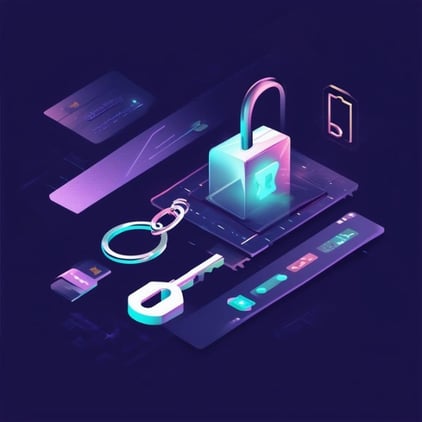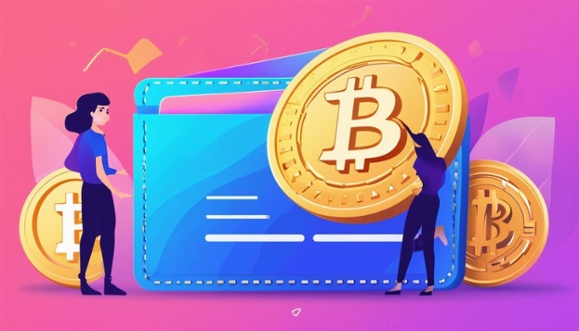Crypto Wallets Explained: A Business Guide to Secure Digital Asset Storage

Since cryptocurrency has increased in popularity among businesses, using the best crypto wallet has become one of the main concerns of those wanting to store their assets safely. Whether one is a crypto newbie or quite versed and needs a wallet for crypto storage, it is highly relevant to understand how crypto wallets work before entrusting one's precious digital coins in them.
What is a Crypto Wallet, and Why is it so Important?
In simple words, a crypto wallet is a place where storing, sending, and receiving cryptocurrencies like Bitcoin and Ethereum take place. That said, crypto wallets don't actually store your digital cash but rather private keys - the information you need to access your assets on the blockchain.
Whether your company plans to take part in frequent trading or holding for the long term, when you choose the best crypto wallet, it will make a whole lot of difference in your crypto journey, secure your assets and experience a smooth transaction.
Here is the breakdown of the ten key things you should know about crypto wallets to be able to make an informed choice.
1. Private and Public Keys as The Foundation of Crypto Wallets

Every crypto wallet is based on a system of private and public keys. So, the public key would be something like your company bank account number, which others use to transfer the cryptocurrencies to you. As for the private key, it is more about something like your PIN. It gives access to the funds and always needs to be kept very secure. The moment you lose your private key, you have lost access to funds, making it all the more essential to secure it correctly.
2. Hot vs. Cold Wallets
There are two main divisions of crypto wallets: hot and cold. Hot wallets are very accessible because they remain online. Thus, though easy and convenient to handle for frequent trading, they are more prone to being hacked. On the other hand, cold wallets, such as hardware wallets, are safer for storing funds offline. These are much safer from any kind of cyber threat but less accessible for quick trades.
3. Software Wallets Are User-Friendly But Riskier
Software hot wallets include those that are most accessible: desktop applications and mobile applications. They're really simple for the user at the front; therefore, they are a good starting point for businesses and individuals. Of course, that also means they are exposed to attacks by hackers because they are online; therefore, 2FA is always a good thing to turn on for added security.
4. Hardware Wallets Are The Safest Option for the Long-Term Holder
You should get a hardware wallet if security is number one on your list. They offer a way for offline storage of your private keys; thus, they are resilient to online threats, such as malware. While these do require an upfront investment and can be way less convenient than software wallets, they offer very good security for those who plan to hold large sums of crypto for extended periods.
5. Custodial versus Non-Custodial Wallets
Another important difference with crypto wallets is the fact that they could be a custodial or non-custodial wallet. In a custodial wallet, a third party- let's say some exchange- keeps your private key; they fully control your funds.
With a non-custodial wallet, you are in complete control of your private key and are in total control over your funds. Many professional and corporate users prefer non-custodial wallets for the autonomy they give, but they also come with much greater responsibility.
6. Multi-Currency Support on How to Manage Multiple Cryptos in One Wallet

With the expansion in the sphere of cryptocurrency, most wallets now support more than one type of coin and token. This is meant by multi-currency support and is very useful when you want to diversify your crypto portfolio. Also, while selecting a wallet, ensure it supports the cryptocurrencies you want to hold or trade-in. Suppose you are into some less-known altcoins; ensure your wallet is compatible with them.
What to Look For in Security Features
Your crypto wallet's security is number one. Among the features to look out for in a wallet are two-factor authentication (2FA), biometric login, and encryption. Furthermore, ensure that software updates are provided regularly by the wallet vendor to patch vulnerabilities. Cold wallets provide the highest level of security, yet even hot wallets can be significantly secured with the right precautions.
Wallet Backup and Recovery Options
Just think about how it would be if you lost access to your company's crypto wallet. That's a nightmare, but it can happen. Hence, backup and recovery options regarding your wallet are highly relevant.
Most wallets would give you a recovery phrase, typically 12 to 24 words, that you have to store safely. If something happens with your device being lost, stolen, or somehow damaged, this recovery phrase is the only clue to getting your funds back.
Fees and Transaction Costs
When choosing a crypto wallet, don't forget about transaction fees. Many wallets don't charge for holding or receiving crypto, but sending usually costs money. These fees can be from the cryptocurrency's network or the wallet provider, and they can vary a lot. If you plan on making a lot of transactions, it's important to research and compare the fees different wallets charge.
Integration with Other Platforms
Finally, check to see if your wallet works with other platforms. Can you use it with exchanges, decentralized apps, or DeFi protocols? Wallets that work well with other platforms make it easier to manage your crypto and take advantage of other services in the crypto world.
Investors can buy XRP with PayPal through integrated wallet platforms that support multiple payment methods for seamless cryptocurrency purchases.
Safeguard Your Crypto with the Right Wallet

Choosing the right crypto wallet is important for keeping your digital money safe and easily accessible. If you plan to trade often, you might prefer a hot wallet, while long-term holders might choose a cold wallet. Many users choose to buy XRP through trusted platforms, ensuring a smooth and secure purchase experience before storing their assets in their preferred wallets.
Understanding the pros and cons of each type of wallet will help you make the best decision for your needs. As the world of cryptocurrency keeps changing, a safe and reliable wallet will help you navigate this exciting financial landscape. Think about your priorities and security needs, and then pick the wallet that's right for you.